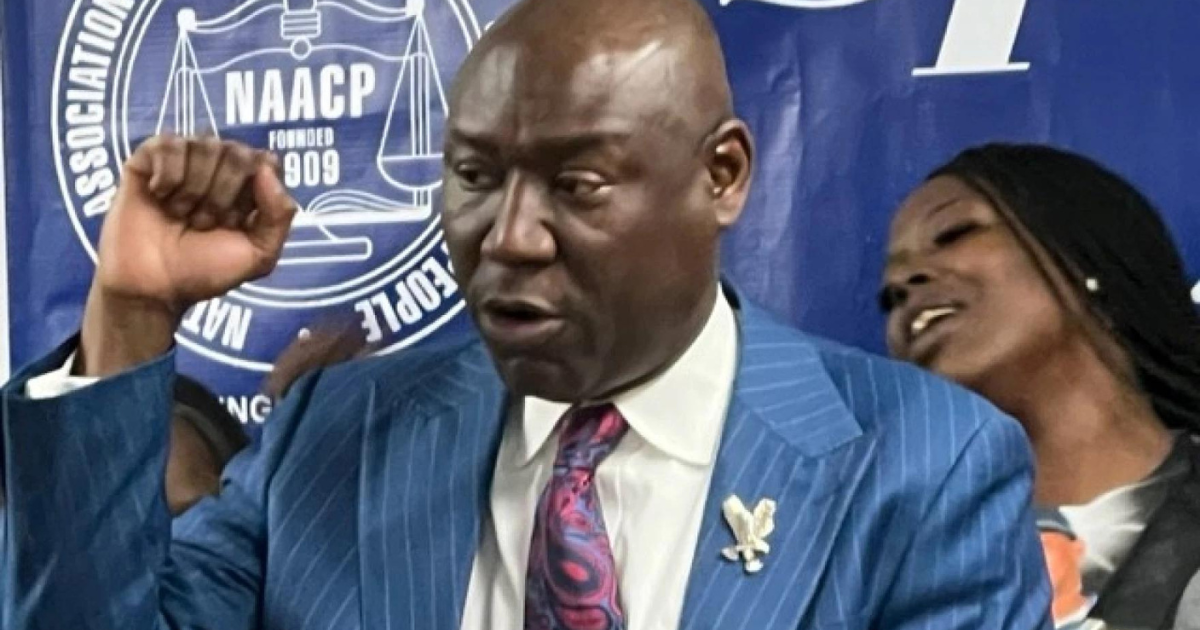Attorney Ben Crump
On January 19, national and local Urban League leaders joined national civil rights Attorneys Ben Crump and Bob Hilliard in the case of a Black Springfield man who died at the hands of negligent paramedics. They called for reforms to address racism in the delivery of emergency and medical services.
“Racial bias in emergency response and the health care system is well-documented and pervasive, and Earl Moore Jr.’s senseless death is the tragic result,” stated National Urban League president and CEO Marc H. Morial. “The hostility and scorn the paramedics displayed toward a confused patient in obvious crisis would be shocking from a bystander, much less from professionals duty-bound to provide compassion and care.”
Springfield Urban League president and CEO Marcus Johnson called Moore’s death a devastating setback for the community.
“For more than 15 years, the Springfield Urban League has worked to build trust between communities of color and health care institutions, an effort which took on even greater urgency during the COVID pandemic,” Johnson said. “The malicious behavior of paramedics Peggy Finley and Peter Cadigan has sabotaged that trust and makes it that much harder for Black Americans to seek and receive the health care they need.”
Moore died last month after two EMS workers transported him strapped tightly facedown. Sangamon County State’s Attorney Dan Wright said Moore died shortly after the tightened straps were placed on his back and lower body.
Police had released officer body camera footage of the incident that showed EMS workers failing to offer assistance to Moore, who was unable to walk and could not get to the stretcher. That is when an EMS worker forcefully placed Moore on the stretcher.
Moore’s family is represented by prominent civil rights Attorney Ben Crump, who said this case is “unlike anything we’ve seen in America.”
“When you look at that video, they offer no humanity to Earl Moore Jr. and that’s why this case is so unique,” Attorney Crump said at a news conference Thursday. “That’s why people all across America are shocked that they would treat an incapacitated man like they did.”
The EMS workers, Peter J. Cadigan, 50, and Peggy J. Finley, 44, were charged with murder on January 9 in the death of Moore, 35, on December 18. They appeared in court on January 22, according to NBC affiliate WAND of Decatur, Illinois.
Both were being held in the Sangamon County jail on bail of $1 million each.
Sangamon County State’s Attorney Dan Wright said they face 20 to 60 years in prison if they are convicted. It was not immediately clear whether they have lawyers.
Police had called an ambulance to a home Moore was in where he was in medical distress. A person in the home told officers that he was suffering alcohol withdrawal and hallucinating, police said.
Moore died of compressional and positional asphyxia “due to prone face-down restraint on a paramedic transportation cot/stretcher by tightened straps across the back.” His death was classified as a homicide, the county coroner concluded.
Moore’s family filed a wrongful death suit January 21 against Cadigan, Finley and the ambulance company, LifeStar Ambulance Services, their employer.
Black leaders say the use of force against Black men is justified because society views Black men as more threatening than white men of identical size and demeanor. They said false beliefs that Black patients have greater pain tolerance and feel less pain than white patients persist among medical providers.
Morial and Johnson said these racist assumptions were “clearly on display in the paramedics’ wildly inappropriate mistreatment and restraint of Moore. Springfield authorities and community groups must work together to identify and eliminate implicit biases, especially as part of the training and certification process for first responders and medical providers.”
Johnson said, “We’re determined that the voices of Black people in pain and crisis not only are heard, but believed and respected.”






